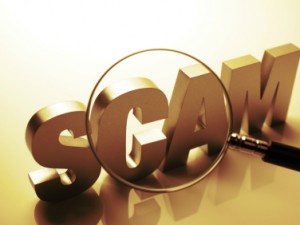Protect Yourself from Financial Scams in London

From ponzi schemes to advance free frauds, financial scams have been going on since ages. There’s a high possibility that even the spam folder in your inbox has a couple of scam e-mails right now. Financial scams are not limited to any specific region, and most of them are actually carried out by people you trust.
The effects of falling prey to a scam can be devastating. People have been known to lose their life savings and even their properties, which can truly rip their lives apart. If you are concerned about financial scams and want to educate yourself for protection, this guide is for you.
Instructions
-
1
Understand that everyone is at risk
The first thing to understand is that everyone is at risk of being scammed. Financial scams don't just target the rich and wealthy. The people behind them don't care whether you have a lot of money or not, they just want it.
One major reason people from the middle and lower class get scammed more is because they are more trusting than typically wealthy people. You might also be surprised to know that even your friends and family members can be scamming you. Often these are the very people who misuse your trust. -
2
Always stay on top of your financial statements
Don't be lazy about checking your financial records and statements every month. Always remember to balance your checkbook and verify every transaction from your bank account, however small.
You need to stay involved in your financial affairs in order to catch discrepancies and suspicious activity. -
3
Never give away your personal information on the phone
Identity theft is a business bigger than you'd imagine, and those people rely on you giving up your personal information without any legitimate cause. Most people get telemarketing calls where callers pitch offers and then ask you for personal details, including bank account information.
Make it a rule never to give out such information, regardless of how polite and sweet the person on the phone sounds.Your foremost duty is to yourself and your assets - protect them. -
4
Use a paper shredder
Shredders aren't just for fancy offices and top businessmen. Anyone with a bank account statement and credit card receipts needs a shredder. Make sure none of your financial documents are thrown away as it is. Always shred them, including any forms you might have filled with your personal information. -
5
Thoroughly research any offers
Whether you are pitched something on the phone or receive an amazing offer in the mail, if you haven't asked for it, which means, if it's unsolicited, you need to conduct your research. Do background checks, verify individual and organization names, employment details, address and other contact information.
Moreover, never rush into a decision affecting your finances. -
6
Contact the NCA
If you happen to witness a crime or need to report a scam, you should contact the National Crime Agency (NCA) by visiting their website here. In emergencies you can dial 999.







